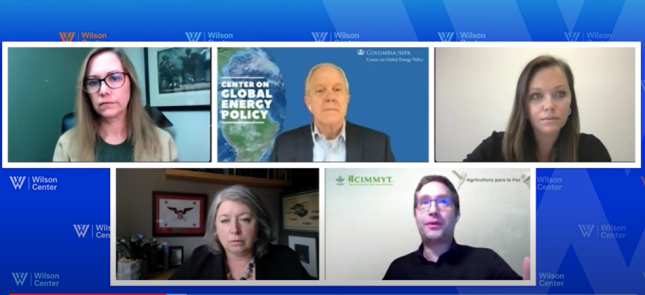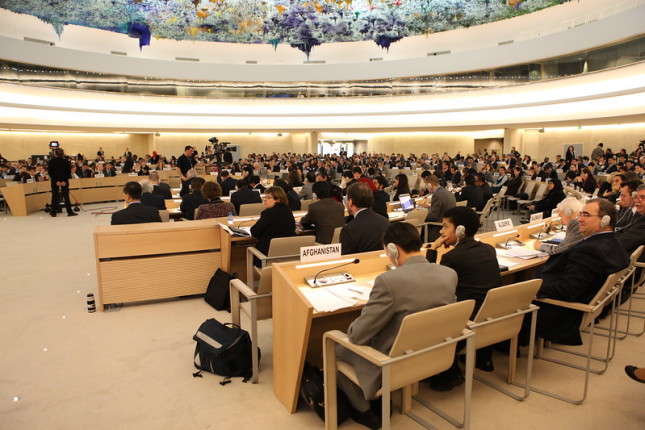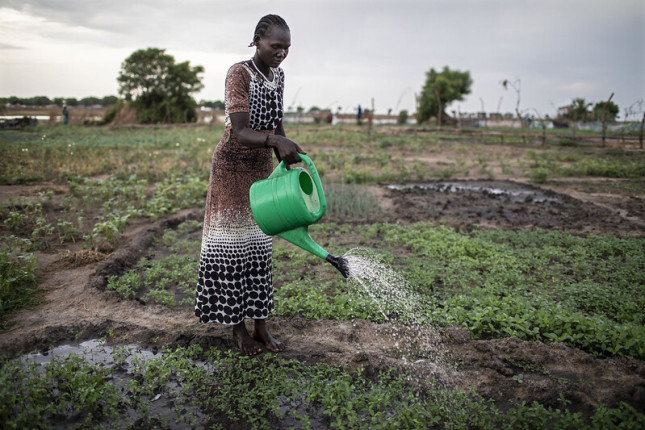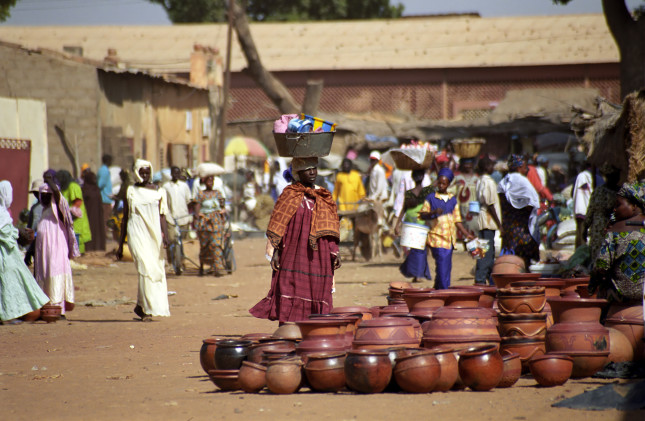-
System Shock: Russia’s War and Global Food, Energy, and Mineral Supply Chains
›
Russia’s invasion of Ukraine is sending shockwaves through global systems for natural resources like food, oil and natural gas, and critical minerals. But a recent Wilson Center event assessing the fallout of the conflict also looked to the deeper implications and lessons from the crisis.
-
Pay More Attention to the United Nations Universal Periodic Review
›
“To attack the most vulnerable—babies, children, pregnant women, and those already suffering from illness and disease, and health workers risking their own lives to save lives—is an act of unconscionable cruelty,” says a Joint Statement from UNICEF, UNFPA, and WHO in response to the ongoing war in Ukraine. To monitor human rights abuses such as this and improve human rights conditions around the world, the United Nations (UN) General Assembly established the Universal Periodic Review (UPR) in 2006. The UPR produces purposeful engagement by all 193 UN member states participating in the periodic reviews. Despite the UPR’s potential to advance human rights—and by extension improve human security—this novel human rights mechanism receives little attention among scholars and policymakers. This lack of interest in the UPR needs to change. More research could shed light on its role in improving human rights outcomes in conflict-free countries as well as in countries experiencing conflict like in Ukraine, Syria, and Ethiopia.
-
#BringBackOurGirls: Ecofeminism, Climate, and Conflict
›
On the night of April 14, 2014, a group of militants attacked the Government Girls Secondary School in Chibok, Nigeria. They kidnapped 276 female students, ranging from ages 15 to 19 years. An armed group called Boko Haram claimed responsibility for the kidnapping.
-
Ukrainian, Belarusian, and Russian Women and the Anti-War Movement
›
“I want this war to be over. I want all of us to rebuild our societies. We are a force that can do that, and we will do that; we are doing it. But I think we also need to see the bigger picture, that women in the world, and now in our region, are not protected from violence – any form of violence,” said Marina Pisklakova-Parker, Director of Strategic Partnerships at the Every Woman Treaty, during a recent Wilson Center event on Ukrainian, Belarusian, and Russian women’s voices in the anti-war movement.
-
What Next for Climate Security? Implications From IPCC Working Group II 6th Assessment Report
›
The recent Intergovernmental Panel on Climate Change (IPCC) 6th Assessment Report (AR6) from Working Group II (WG2): Impacts, Adaptation and Vulnerability presents the stark implications of climate change. At today’s warming level of 1.1°C, a wide range of impacts to people and nature are attributed to human-caused climate change, including hindering progress on the Sustainable Development Goals (SDGs), damaging infrastructure and economic activities, harming human health and causing excess deaths, and increasing humanitarian needs. Some impacts, like those on sensitive ecosystems, are already irreversible. The more vulnerable are hit harder, due to pre-existing structural conditions that increase their exposure and sensitivity to hazards.
-
#DontMuteDC: Go-Go and Social Justice in the District of Columbia
›
In April 2022, as Washington awoke from its COVID slumber, The Kennedy Center turned to long-time community activist Ron Moten to organize a tribute to the city’s endemic sound, Go-Go. Moten has fought numerous battles against gentrification, displacement, and for social justice. He learned over the years that the loss of distinctive cultures stands at the heart of the dislocations occurring in cities across the nation. This embrace led to the establishment three years ago of a particularly potent urban social action group, #DontMuteDC. That movement’s story offers several important lessons about the power of the arts to mobilize support for social change.
-
Ukrainian Resilience: Ukrainian MP Kira Rudik Discusses Surviving in Kyiv [New Video]
›
When Kira Rudik, Ukrainian Member of Parliament and Leader of the Holos/Voice Party spoke with the Wilson Center’s Maternal Health Initiative and Middle East Program on the one month anniversary of Russia’s invasion of Ukraine, she emphasized the transformative nature of the conflict for every citizen.
“Putin thought he would be fighting our army,” says Rudik. “Instead, he’s fighting every single man and woman in Ukraine, and there’s a huge difference.”
-
‘An ounce of prevention is worth a pound of cure’: U.S. conflict prevention policy in a world of climate change
›The crisis in Ukraine is rightly at the center of U.S. foreign policy attention but, even in the midst of that justified focus, the latest IPCC report unflinchingly reminds us of another emergency: we are running out of time to avoid the most devastating effects of climate change, including the social, economic, environmental and security risks that can actually drive war.
Showing posts from category conflict.











